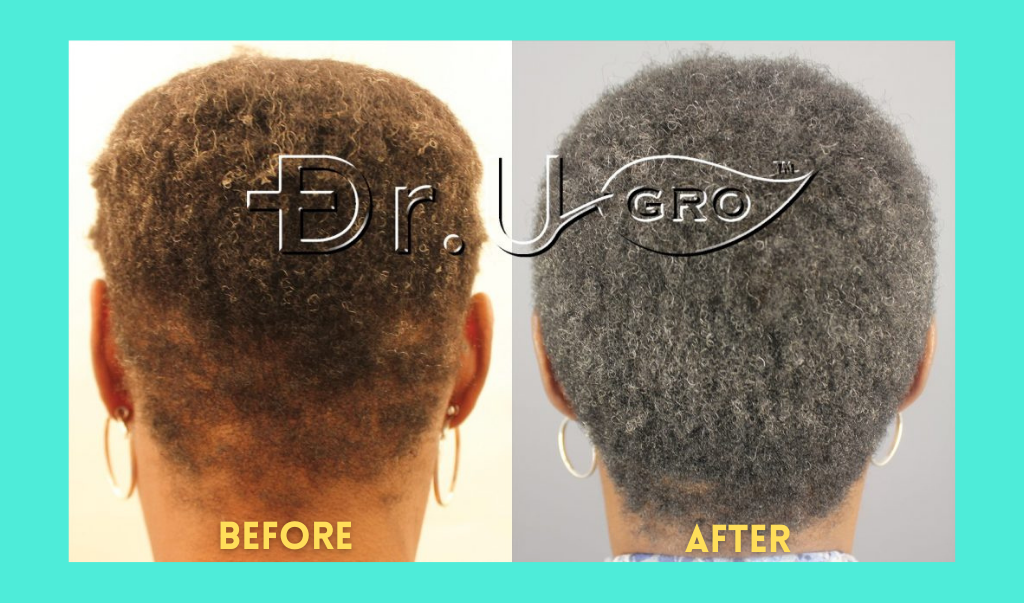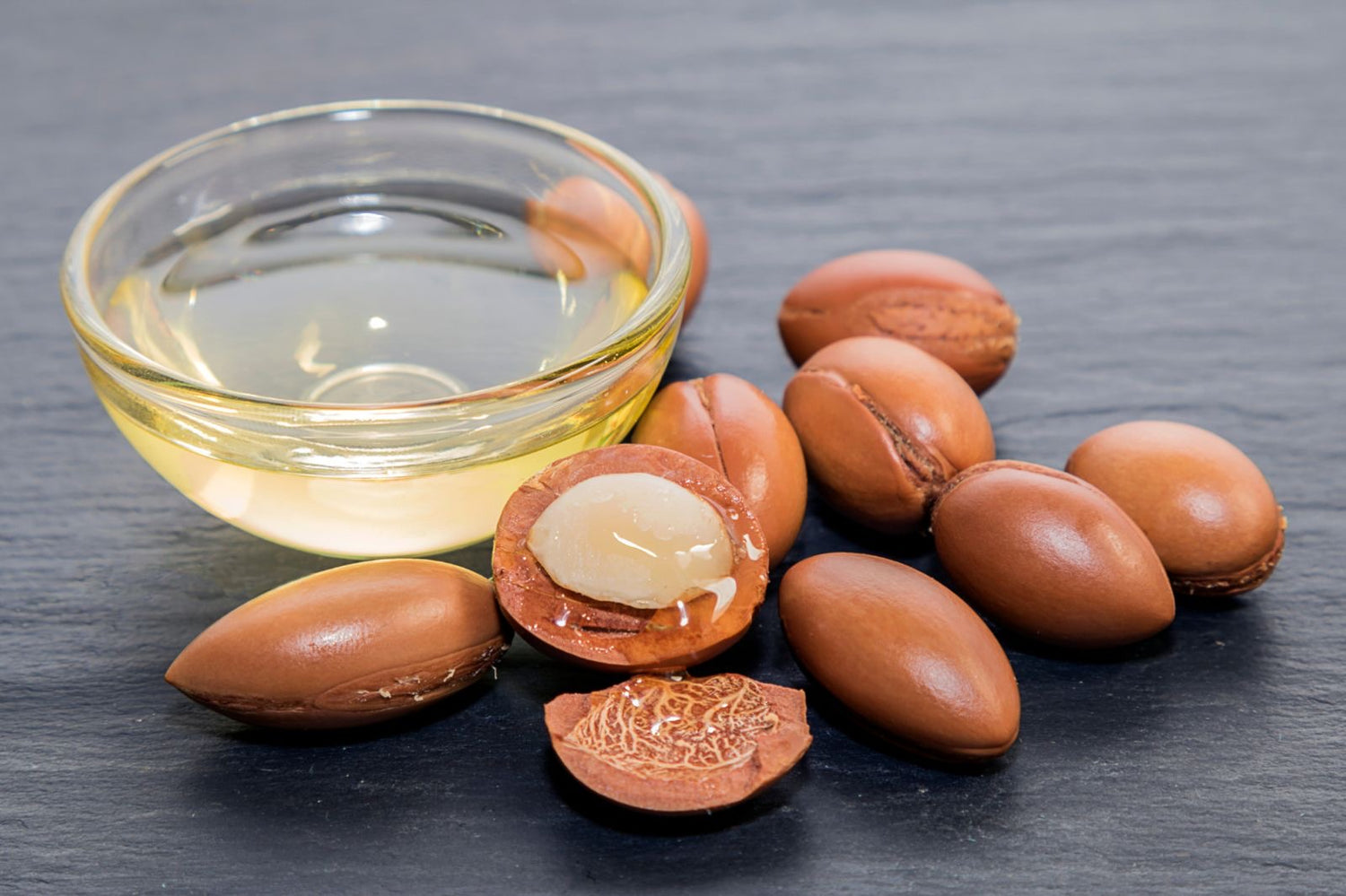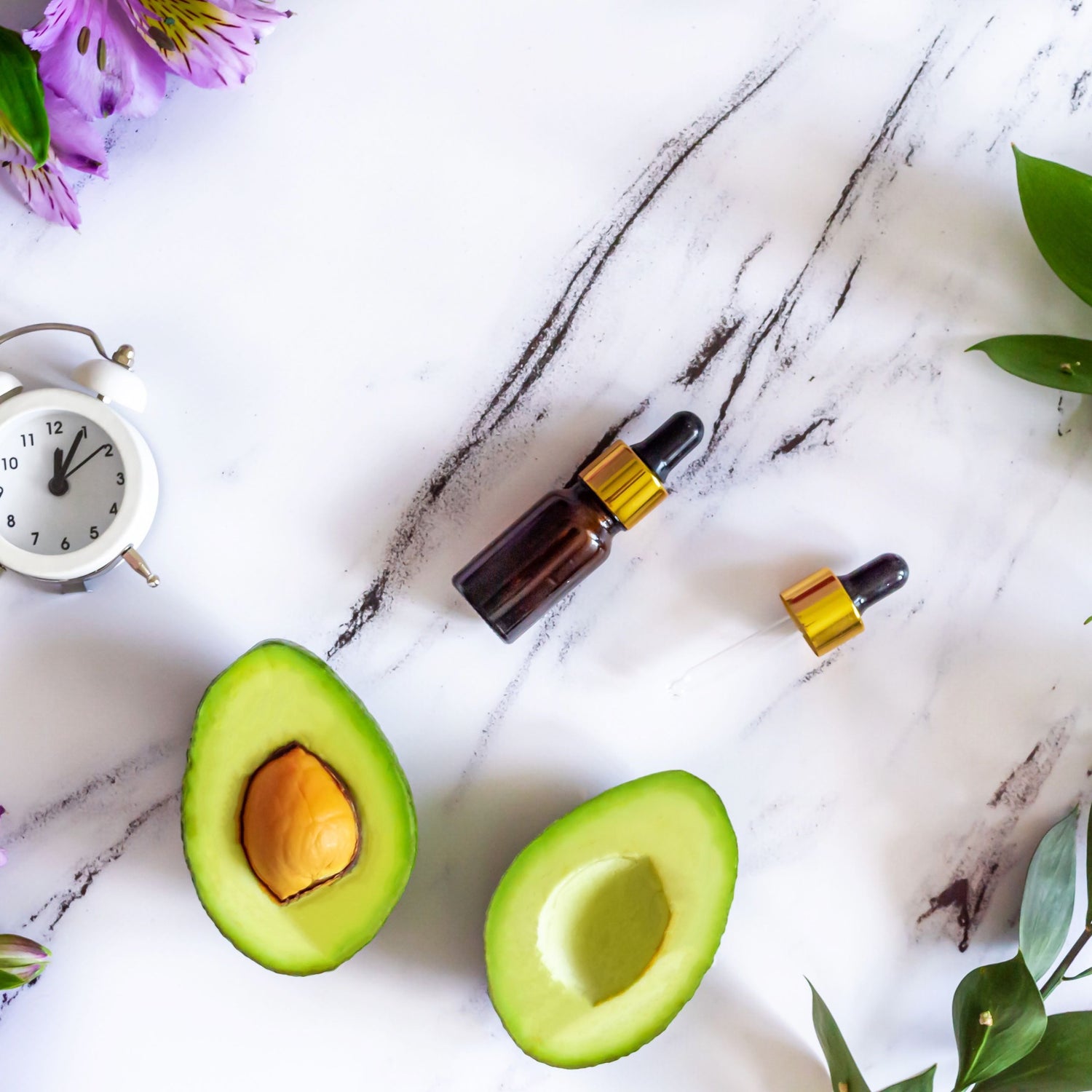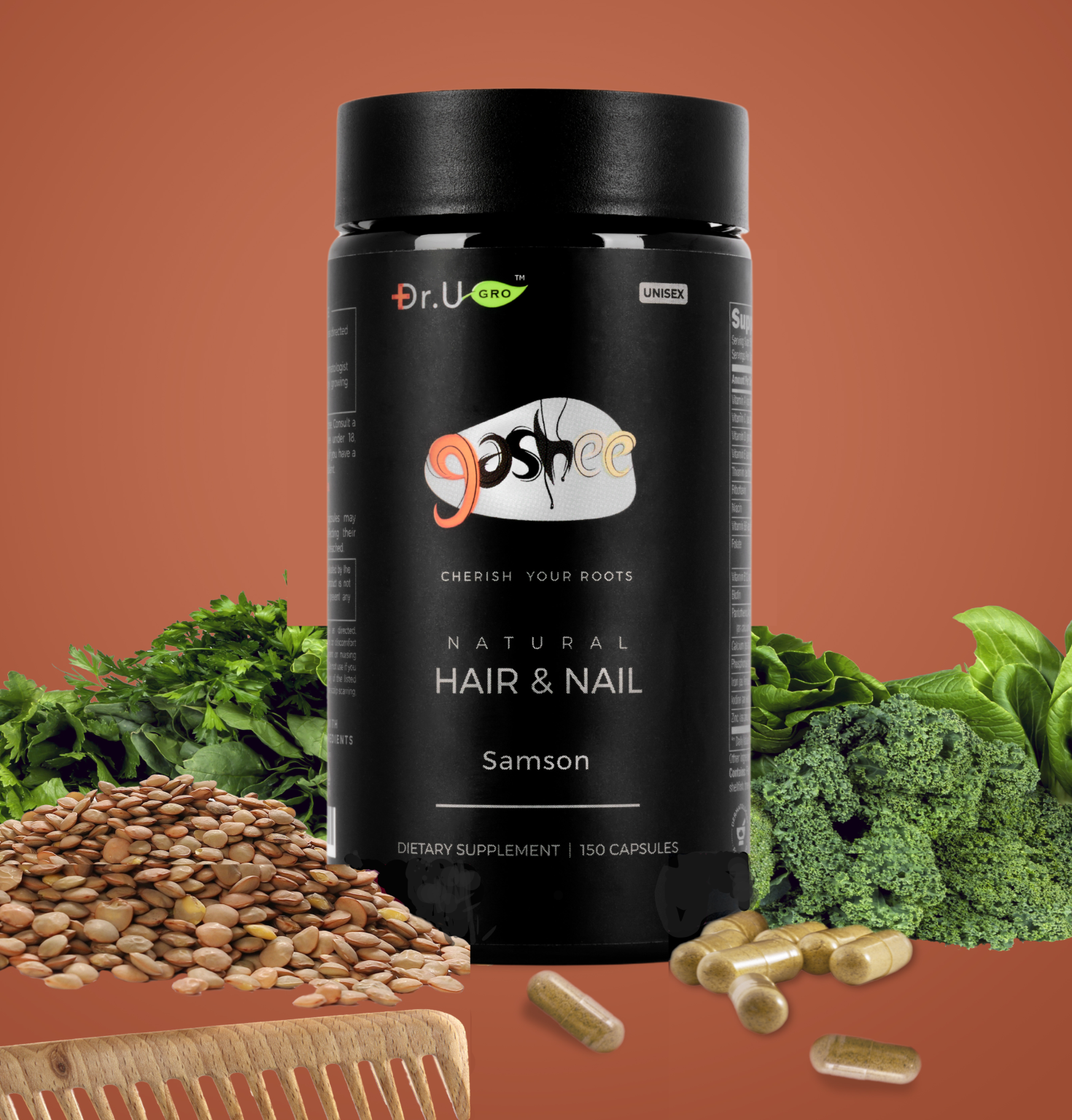What is Lecithin?
First isolated in 1845 by a French chemist and pharmacist named Théodore Gobley, Lecithin is derived from the Greek word "lekithos," which means "yolk." Lecithin is a generic word designated to any yellow-brownish fatty substances found in animal and plant tissues. Lecithin is amphiphilic because it attracts both water and fatty substances (both hydrophilic and lipophilic). Regarding cellular function, lecithin is a mixture of fats that are essential to cells within the human body. Today, lecithin can be found in many foods, including soybeans and egg yolks which are prime examples of lecithin-rich foods. In this article, we will cover lecithin for hair benefits, "is lecithin good for hair growth," doctor-recommended lecithin for hair products, and if lecithin for thinning hair is a viable option, as well as related studies mentioning lecithin for hair growth and general health. Lecithin also goes by the name alpha-phosphatidylcholine. Additionally, it is essential to understand that lecithin is not a single substance but rather a group of chemicals known as compounds called "phospholipids."
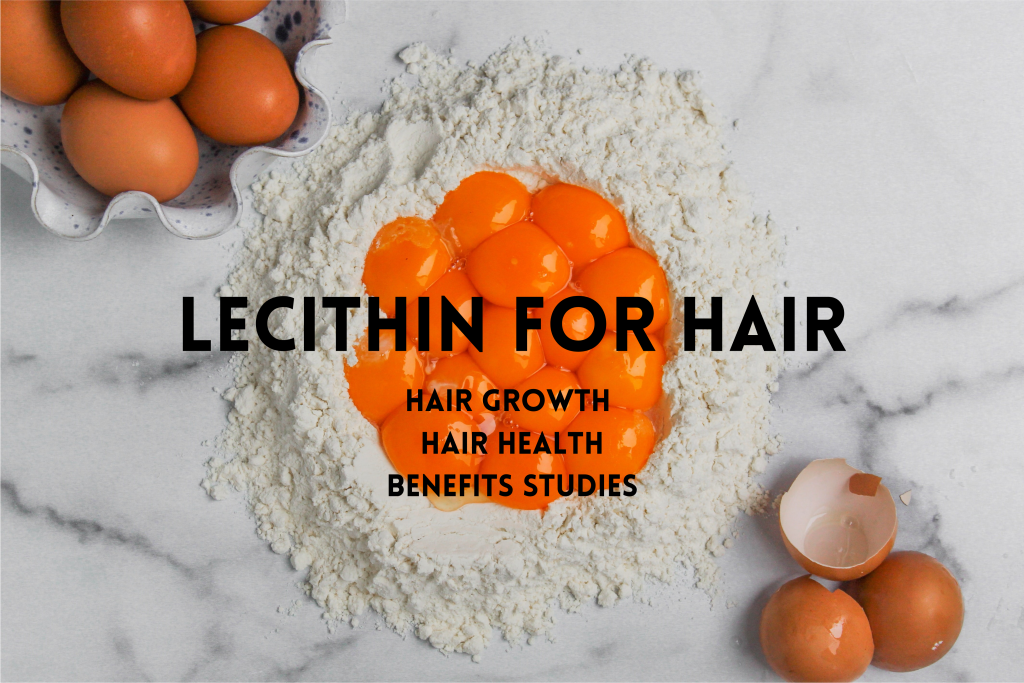
Lecithin, found in egg yolks, can possibly help hair health and hair growth.
Lecithin Health Benefits
Before we cover lecithin's specific benefits regarding hair growth and hair health, it is essential to note that lecithin has several important health benefits for the body in general as well, due to it belonging to the phospholipids family, which is a type of fat cell that help maintain the integrity of cells vital to the regular functioning of:
- The Brain
- The Nerves
- The Liver
- Other Vital Organs
One of lecithin's essential functions within the body is to provide a basis in the structure of cells to prevent the hardening of cell membranes. Therefore, lecithin is a crucial component needed in every cell in our bodies. Due to lecithin's role in the proper maintaining and functioning of these critical organs, lecithin has several health benefits, which include:
- Improved sleep patterns
- Enhanced athletic performance
- Alleviated stress and anxiety
- Lowered cholesterol
- Reduced inflammation
- Improved liver function
- Prevented loss of cognitive function and onset of dementia
More so, according to Medical News Today, lecithin supplementation can be used to help treat:
- High Cholesterol
- Digestive Issues
- Prevent Clogged Milk Ducts During Breastfeeding
- Certain Neurological Conditions
- Certain Inflammatory Conditions
Lecithin for Hair Growth, Hair Health Benefits
If you are looking for thick, shiny, and healthy hair, rest assured that it is based mostly on sound nutrition. Regarding lecithin and its benefits for the hair, it is essential to understand that lecithin is an oily substance, an emulsifier, found in several hair care products, such as natural botanical pomade for hair health. Out of all lecithin-based products, most of these are based on soybeans. Yet, it is essential to note that other forms of plant-based lecithin are extracted from oilseeds such as sunflower, grape seeds, and canola seeds. On another note, there are also animal-based lecithin products, which are mostly sourced from egg yolks. There are also other lecithin-based products that are extracted from other types of animal products. It is important to understand that both plants and animals can both synthesize lecithin - this is why there are plant-based lecithin and animal-based lecithin. Lecithin can also be used as part of an oral supplement or found in many cosmetic and beauty products.
Is Lecithin Good for Hair Growth?
One of the most important parts of lecithin is its oily nature, which can do a great deal of wonder for the hair if applied topically from a lecithin-containing hair product, such as this lecithin-infused pomade. Due to the rare yet possible side effects of ingesting oral lecithin supplements, it is recommended to try a lecithin-infused topical pomade instead to evade these potential side effects from ingestion and to make the most out of the oily and moisturizing, protective content of lecithin's natural fats for the hair and scalp. Some of the benefits of lecithin for your hair include:
- Softening hair
- Keeping hair moisturized
- Reducing hair frizz
- Binding split ends
- Adding strength and sheen to hair
The oily nature of lecithin is due to its role as a group of fatty animal or plant tissue. Specifically, the oily lecithin in hair care products can be particularly beneficial for thin, dry, and brittle hair.
- Lecithin and unsaturated fats support the regeneration of hair and the protective membrane around damaged hair
When applied to the hair, the fatty and oily nature of lecithin helps moisturize and refortify the cell membranes around dry, damaged, or brittle hair so that it can turn into smooth, moisturized, silky, and shiny hair - and it can even help reverse the effects of aging. Additionally, it is essential to note that lecithin's moisturizing and hair-protective qualities are very effective and often needed for those with more wavy, curly, or coily hair because these types of hair are more prone to dryness and breakage. Dry hair, in particular, benefits from lecithin because it improves the structural quality and integrity of the damaged hair. This is because lecithin forms a fundamental building block of membranes inside and outside of every hair cell to protect and refortify it and nourish it via moisturization by keeping enough water molecules within the hair to keep it at its optimum health and strength. In fact, lecithin can also help replenish hair deep within the inner shaft.
Lecithin for Hair Health: Benefits of Choline & Insotil
Additionally, lecithin also provides more hair health benefits due to its primary nutrients: choline and insotil. Choline and insotil are both equally crucial for healthy hair growth. Both nutrients are part of the B complex vitamins needed for healthy hair growth, hair repair, and hair maintenance. Due to all of these factors, lecithin, in summary, supports and enhances the amount of protein required for new hair growth. At the same time, lecithin's oily nature as a moisturizing and refortifying emulsifier helps improve the shine and texture of hair by adding shine and luster by using its high concentration of fatty acids as a barrier on the skin to effectively capture and seal in moisture.
Types of Damaged Hair That Can Possibly Be Repaired Through Lecithin Use
By styling, applying chemical applications and heat, or through repeated environmental damage to the hair, the hair can become dry and brittle, lacking the natural sheen and shine of happy, healthy, moisturized hair. By applying a natural botanical topical pomade containing lecithin to the hair, the hair can recover from this type of damage by stimulating new hair growth and re-moisturizing dry and brittle hair.
2017 Study on Lecithin: Preparation and in Vivo Evaluation of Lecithin-Based Microparticles for Topical Delivery of Minoxidil
Has there been any peer-reviewed article or studies on lecithin for hair health and possible hair growth and restoration? In a 2017 study published in the Archives of Pharmacal Research, researchers found that a minoxidil 5% solution containing lecithin microparticle showed hair re-growth as efficient as a commercial product of minoxidil 5% solution. Yet, more than that, the lecithin-containing minoxidil 5% solution also significantly improved skin troubles. In comparison, the commercial 5% minoxidil solution without lecithin had presented "substance and crust formation" on the skin of some patients within this group. Therefore the study concludes that lecithin-based microparticles in minoxidil 5% solution has an excellent ability to promote hair growth at a similar rate and efficiency as a commercial 5% minoxidil solution, albeit without the adverse skin side effects.
Foods High in Lecithin
Besides lecithin's possible use for hair health and hair growth, it is also responsible for vital functions within the brain and the nerves, especially regarding Alzheimer's disease. Some foods that are naturally high in lecithin content are:
- Organ Meats
- Brain
- Liver
- Kidney
- Red Meats
- Seafood
- Egg Yolks
- Soybeans
- Whole Grains
- Milk
- Peanuts
- Wheat Germ
- Green Vegetables
- Broccoli
- Brussel Sprouts
- Cabbage
- Cauliflower
- Legumes
- Lentils
- Black Beans
- Kidney Beans
It is important to note that organ meats, in particular the brain, liver, and kidney, are some of the richest sources of lecithin available to the body.
Lecithin Supplementation
Lecithin is also available in the form of oral supplements. These lecithin supplements are often made from soybeans. If you have an allergy to eggs or soy, it is best to check the source of the lecithin supplementation to ensure that they are not eggs or soy-based.
Lecithin Supplementation Possible Side Effects
Even though lecithin supplements are considered generally safe, they are not regulated in the same way prescription drugs are controlled and should be taken with care. It is essential to first consult with a doctor before taking lecithin or any other supplement, particularly if you are managing a health condition, have allergies, or are using medications of any sort. Some common side effects of lecithin supplementation include:
- Increased Salivation
- Decreased Appetite
- Diarrhea
- Nausea
- Abdominal Pain
- Abdominal Bloating
It is important to note that as stated by the experts at the University of Nebraska's Food Allergy Research and Resource Program (FARRP), these allergic reactions from taking lecithin oral supplements are uncommon, even among people with soy allergies. More so, these researchers and experts have concluded that lecithin produced from soybeans often does not contain enough soy protein to induce an allergic reaction.
Lecithin Supplementation Precaution - Pregnant, Breastfeeding Women
As a standard precaution, lecithin supplementation should not be used in women who are breastfeeding, pregnant, or in the process of attempting pregnancy unless under the explicit direction of an obstetrician-gynecologist. Furthermore, children should also avoid lecithin due to the lack of safety research in lecithin for children.
Lecithin Safety Profile
As stated by the EWG, lecithin has a safety score rating of 1-2, which places lecithin at no risk for cancer and developmental and reproductive toxicity, and little-to-none risks for allergies, and immunotoxicity. Additionally, Lecithin is approved by the United States Food and Drug Administration for human consumption with the status "generally recognized as safe."
Lecithin Recommended Dosage
According to Very Well Health, there is no specific guideline for the appropriate dosage of lecithin, although many manufacturers endorse a daily dose of 2,400 mg for adults. As part of a standard precaution, it is advised to never exceed the recommended dosage on the product level.
Harness the Lecithin-Infused Power of Dr.UGro Botanical GASHEE Pomade!
Lecithin is one of the many powerful natural botanical ingredients found in Dr.UGro Gashee Pomade for improved hair health. To help increase the feel and appearance of hair density, thickness, and volume, or to help regrow hair lost or aid hair growth, apply a pea-sized amount to fingers and rub directly on to scalp or targeted area once or twice daily.
VIDEO: Dr. UGro Gashee Pomade: Before & After Results
Diane noticed that the texture and thickness of her hair had changed. Suddenly, it was patchy and frail. She had begun to find that there were now sparse hairs revealing a substantial part of her scalp, and the hair on her edges and temples was short, lacking in volume, fullness, and was beginning to break.
Stress Was The Tipping Point for Her Hair Loss
For Diane, it was perhaps stress as the final tipping point, as her husband Tony noted that the recent death of her parents and siblings had possibly attributed to the heart-wrenching stress that may have contributed to the change in Diane’s hair. Hair Loss Symptoms She Had to Deal With:
- Receding Hairline
- Growing Bald Patches
- Thinning Hair
Dr. UGro Gashee: Before & After Pictures – Hair Health Improvement Results
Dr. UGro Gashee's natural hair health improvement results: before and after several months of consistent usage. Note the improved fullness, length, texture, sheen, and shine of Diane's new overall hair health.
Within a few months, Diane's hair was fuller. "There was a striking difference in her hair in comparison to pictures she'd taken before using the products," she pointed out. "It has changed my life," Diane said with a smile. "In terms of how I see myself and how I am confident in appearing in the outside world." For more of Diane's personal testimonial on her happiness and satisfaction with Dr. UGro GASHEE Natural Hair Growth Products, visit Diane's full interview here.
What Makes Dr.UGro Gashee Hair-Growth Products Different
Dr. UGro Gashee Botanical Topical Pomade is uniquely formulated by Dr. Sanusi Umar, a double-licensed dermatologist, and pioneer of the FUE hair transplant method with over 25 years of experience in the field. Unlike other products dedicated to hair health and hair improvement, Gashee's powerful blend of natural plant-based ingredients containing lecithin has been cold-formulated to maximize each plant’s unique properties, delivery, and penetration, combining them to stimulate different pathways and functions within the body to maximize hair health, hair health improvement, and hair growth. This is why Gashee Products have been able to often deliver hair health improvement results much more significant and noticeable than other medicines, treatments, prescribed or over-the-counter. If you are tired of trying products that do not help improve hair health and want to try an all-natural and healthy approach to hair health maintenance or optimization, try our Dr. UGro Gashee All-Natural hair products today.
References
- Medicalnewstoday.com. 2021. Lecithin: Benefits, risks, and types. [online] Available at: <https://www.medicalnewstoday.com/articles/319260> [Accessed 22 November 2021].
- Farrp.unl.edu. 2021. Soy Lecithin | FARRP | Nebraska. [online] Available at: <https://farrp.unl.edu/soy-lecithin> [Accessed 22 November 2021].
- Lee, H., Oh, D., Na, M., Kim, D., Yuk, D., Choi, H., Lee, Y., Han, K. and Park, C., 2021. Preparation and in vivo evaluation of lecithin-based microparticles for topical delivery of minoxidil.
- EWG. 2021. EWG Skin Deep® | What is LECITHIN. [online] Available at: <https://www.ewg.org/skindeep/ingredients/703513-LECITHIN-LECITHIN/> [Accessed 22 November 2021].
- En.wikipedia.org. 2021. Lecithin - Wikipedia. [online] Available at: <https://en.wikipedia.org/wiki/Lecithin> [Accessed 22 November 2021].
- Verywell Health. 2021. What Is Lecithin?. [online] Available at: <https://www.verywellhealth.com/lecithin-4771091> [Accessed 22 November 2021].
Further Reading
For additional information regarding hair loss and hair health-related ingredients that you may find useful, visit the new articles below.
- https://gashee.com/blogs/wellness-blog/iodine-for-hair-health-hair-growth-benefits-studies
- https://gashee.com/blogs/wellness-blog/vitamin-b1-for-hair-growth-hair-health-benefits-studies
- https://gashee.com/blogs/wellness-blog/copper-for-hair-growth-hair-health-benefits-studies
- https://gashee.com/blogs/wellness-blog/vitamin-a-for-hair-loss-hair-growth-thickness-health-benefits-studies


